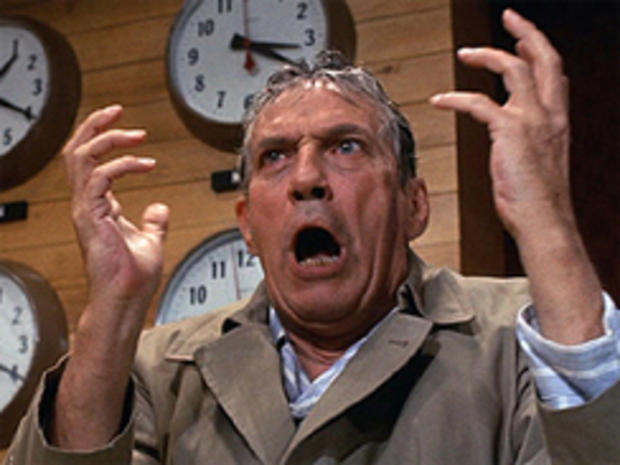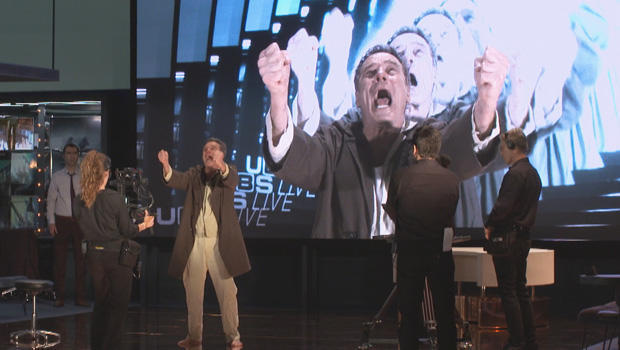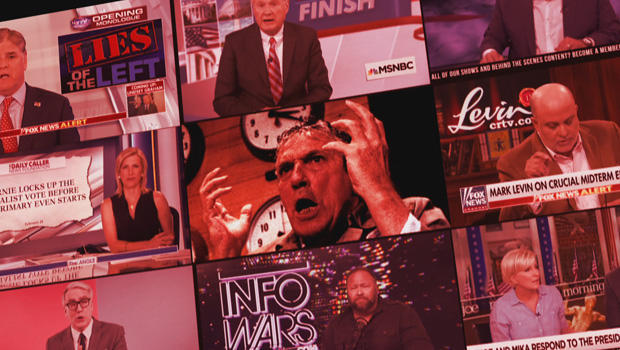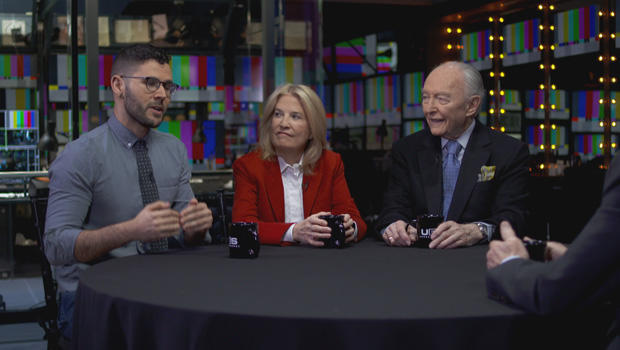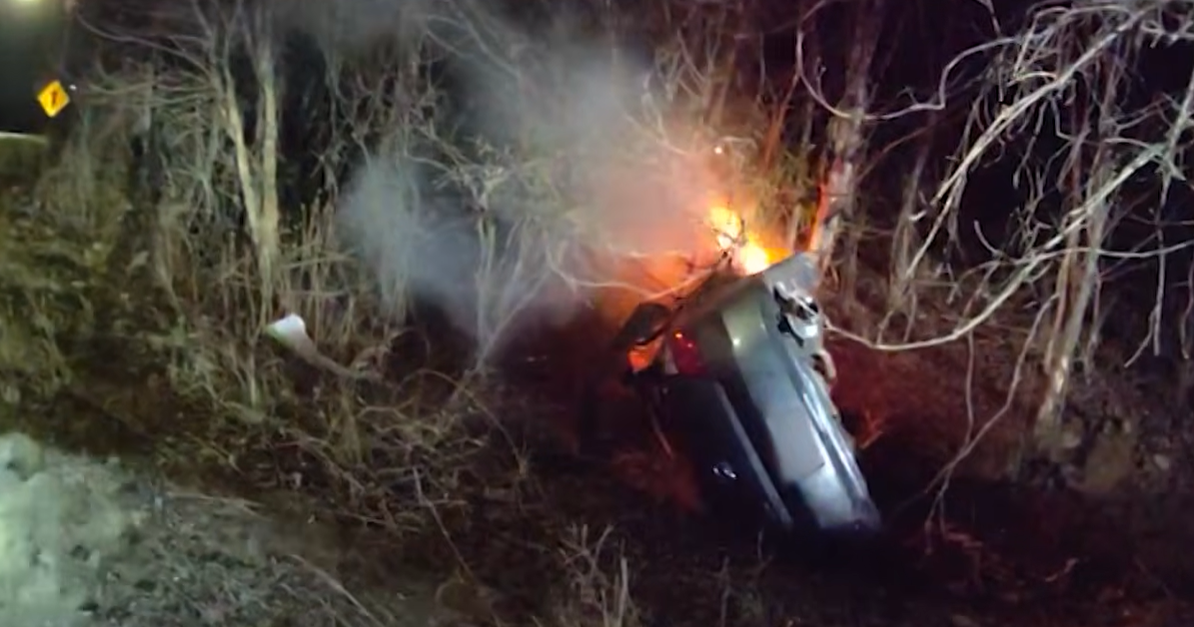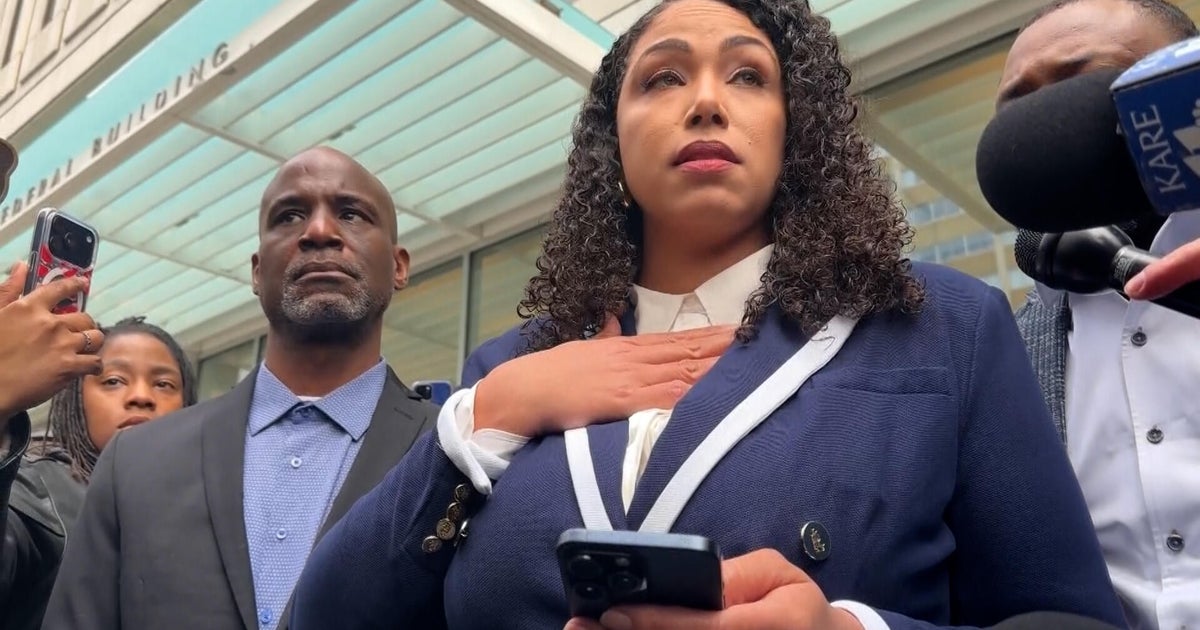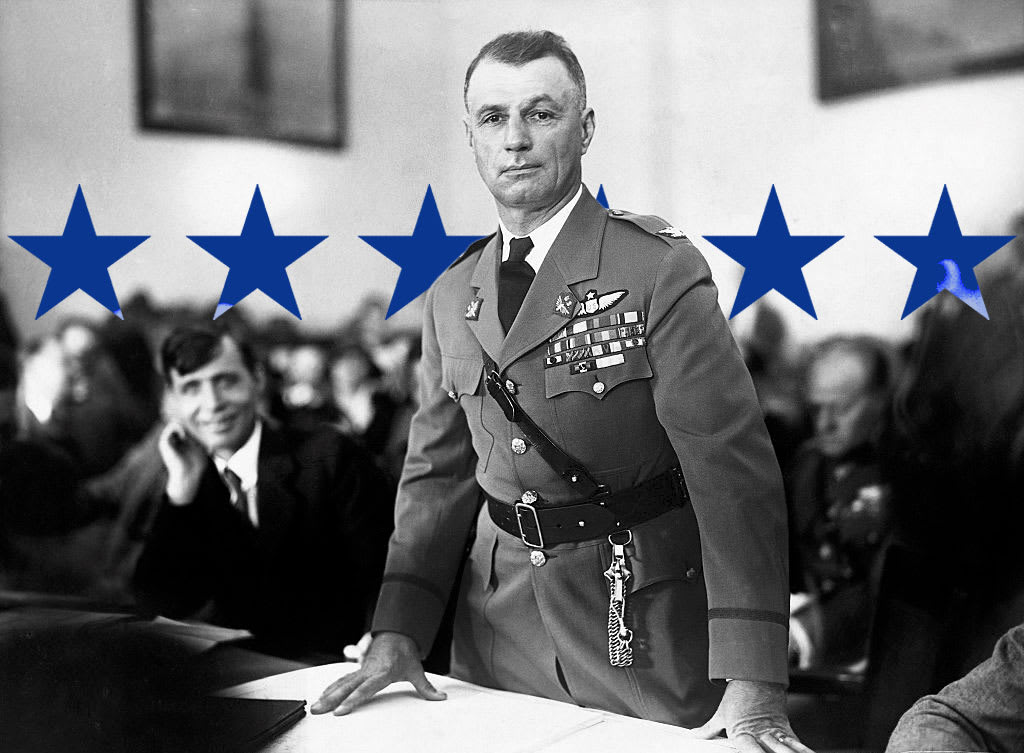"Mad as hell": How "Network" foretold today's TV news
If you're of a certain generation, the names and faces of Cronkite, Chancellor, Brinkley and Reasoner will evoke memories of a gentler time in network news.
And then, there was Howard Beale. He, and his network, UBS, were figments of the imagination of Paddy Chayefsky, the screenwriter for the 1976 movie "Network," in which an anchorman with lousy ratings is fired.
Art imitating life.
And then, Beale (played by Peter Finch) makes this on-air announcement:
BEALE: "Since this show was the only thing I had going for me in my life, I have decided to kill myself … I'm going to blow my brains out right on this program a week from today."
PRODUCTION ASSISTANT: "Ten seconds to commercial."
If the control room staff is oblivious, viewers are not. Public reaction provides a reprieve for Beale; he's not fired, indeed, he's encouraged to go on being spontaneous, unpredictable:
"First, you've got to get mad! You've got to say, 'I'm a human being, goddamit! My life has value!' ... So, I want you to get up now. I want all of you to get up out of your chairs. I want you to get up right now and go to the window. Open it, and stick your head out and yell, 'I'm as mad as hell and I'm not going to take this anymore!'"
The fictional anchorman had stumbled onto a reality that would animate television news into the present day: Success lies in the incitement of anger.
A fresh version of "Network" is now playing to packed houses on Broadway, starring Bryan Cranston as the modern incarnation of Howard Beale. "What makes it so relevant is, Howard Beale rails against his audience's addiction to the tube, to television," Cranston said … even as he draws them in.
And today, if people want to express their anger, they don't have to open the window, stick their heads out and yell "I'm mad as hell." "They'll put it in a tweet," said Cranston. "That'll get ya!"
"And they reach a lot more people," said Special Correspondent Ted Koppel.
"But there is also, I think, a sense of privacy, that they think, I'm just gonna put it in a tweet. I don't have to tell the person directly. I'm gonna let this device send the message."
Koppel said, "What I find so fascinating about the play, it's the same theme from the movie, too, this ability to mobilize anger."
"Well, it's worked for many people," Cranston laughed. "You know, President Trump is a brilliant mastermind in that regard. He knows how to get in, stimulate – one way or the other – either pro or con. But he knows how to manipulate and stimulate and work that, and massage the energy of what that is."
What may, indeed, have begun as satire in 1976, gradually infected an entire industry. Howard Beale, the "Mad Prophet of the Airwaves," spawned a generation of inadvertent imitators:
Alex Jones: "We're under attack! Everybody's under attack!"
Jeanine Pirro: "Donald Trump is bringing America back in front of our eyes! And it's time for the un-American haters to get on board!"
Keith Olbermann: "Nonsense! He's right this time: We people just really effing hate him!"
Sean Hannity: "You, we, the American people, we were lied to over and over and over again!"
Cenk Uygur: "You constantly appease Republicans and corporate Democrats every day. Show me one positive article about progressives!"
Whatever their ideology, be it on cable television or social media, however closely or loosely they traffic in truth, they have all learned that anger sells.
A few observations, then, from three generations of communicators whom "Sunday Morning" assembled on the Broadway stage of "Network."
"The only occupation specifically protected in the Constitution is the press," said Greta Van Susteren, who for most of the past 25 years has been a fixture on cable television. "And you would think there'd be some sort of higher moral obligation. And I realize you gotta make money to keep these networks going, to not go so far out on a limb. To go so far out to generate those ratings that everybody wants."
Carlos Maza, who appears on the news and opinion website Vox in his program "Strikethrough," did not exactly take anchoring instruction by watching old tapes of Walter Cronkite. "I don't want to rely on the crutch that I look like a newsperson," he said. "I want to convince you that I am making a research-driven argument based on my work.
"To answer your question, 'What is the obligation or role of a journalist?' it's not just to tell those people what's important. It's to make those stories attractive, desirable and interesting in a way that compels them to watch."
Van Sustern said, "All these cable networks watch the ratings minute by minute by minute. And they know that if people are screaming at each other, or some guest says something outrageous, or some anchor calls somebody a liar, it will spike the ratings a little bit. And the viewers say, 'We want more on human trafficking, we don't want that kind of thing,' but they're watching it."
This news-as-profit-center approach to the business model of television news all came together around 1980. When asked how that influenced what appeared on the air, elder statesman Dick Wald – one-time president of NBC News, who was then a senior executive at ABC News when Koppel began anchoring "Nightline," said, "I'm not sure that the people inside the system knew how it would affect things, other than to be more budget-minded. I think the people outside the news division looked at it and made it a driving question."
Maza once stated that "Democracy and capitalism are incompatible." ("My most extreme, controversial view!") When asked to explain, he said, "Humans want things that are bad for us. We want sugar in our food; we want alcohol and drugs; we want sex on TV. That poses a challenge, because if you create a marketplace in which people have access to everything that they want, the stuff that's bad for you will win. And if you look at the ratings of the cable news networks, that is certainly empirically true. The more you lean into fear and anxiety and ginning up false threats, creating an idea [that] there are outsiders coming to get us, the more people will tune in.
"We are hardwired to follow our fear."
Van Susteren said, "Here's where I differ with you. I actually think that the viewers are smart. I think we present information to them, aggressively scrutinize those in power, and I think they're a lot smarter than I think you do."
In response, Dick Wald noted, "I'm convulsing! There's just a point we're not addressing: All of these news operations have become a smaller and smaller part of a bigger and bigger entity, the heads of which have no connection to the [news]. They don't want bad news produced, but they are not involved in, and it is not their essence to be involved in."
"But that's what ['Network'] is all about," said Koppel. "That's what Howard Beale is screaming about."
"It's gone away from humanity to corporation," said Wald.
Cranston as Howard Beale: "Pick up your remote controls and strike us down! Put an end to this madness! Strike a blow for sanity ... and set yourselves free, godammit!"
Control Room Director: "And … cut to the ad break!"
Satire? Maybe, in 1976. Now? More like a documentary.
For more info:
- "Network" at the Belasco Theatre, New York City | Ticket info
- "Network," directed by Sidney Lumet, available to stream via Amazon Prime, Google Play, iTunes, Vudu and YouTube
- Richard Wald, Columbia Journalism School
- Follow @Greta Van Susteren on Twitter
- "Strikethrough" (Vox)
Story produced by Dustin Stephens.
